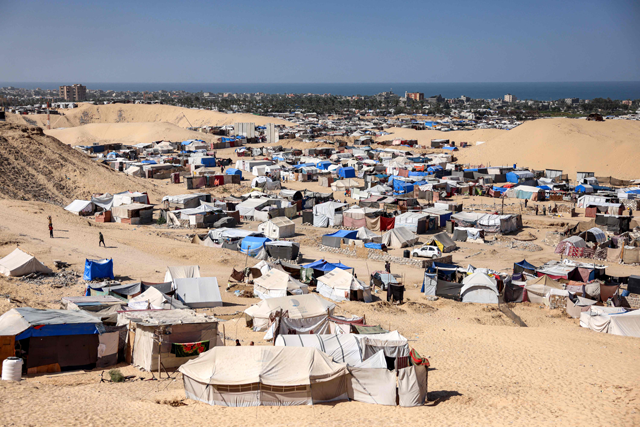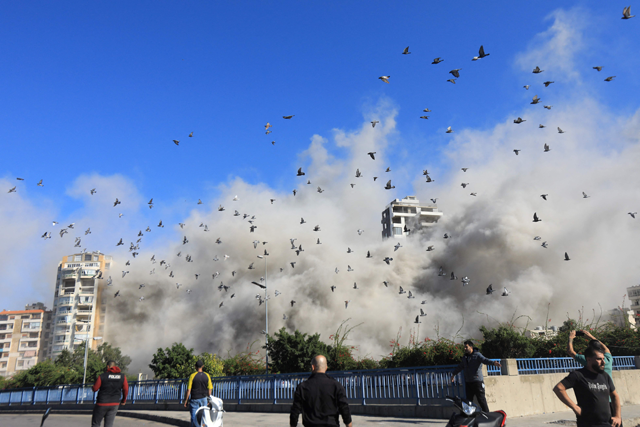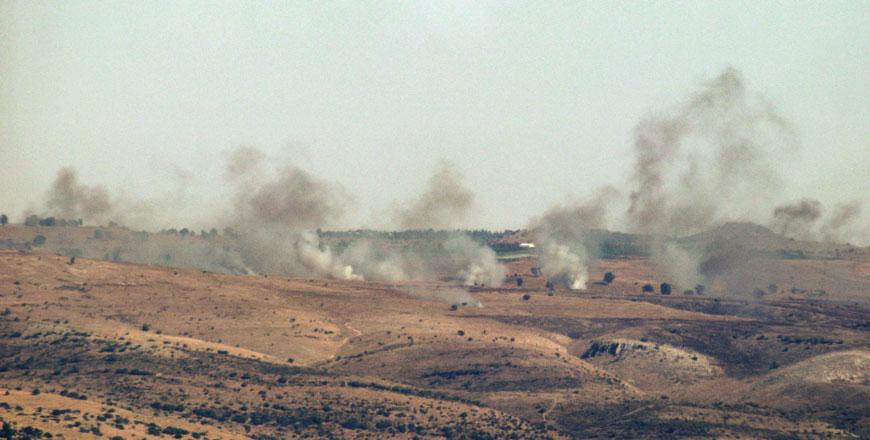JERUSALEM — US Secretary of State Antony Blinken said on Wednesday "now is the time" to end the conflict in Gaza, and urged Israel to avoid further escalation with Iran.
In southern Lebanon, AFP correspondents reported several Israeli air strikes on Tyre, after the military warned residents of parts of the city to flee ahead of operations targeting Hizbollah.
The warning sparked a new exodus from the once vibrant city, which is perched on the Mediterranean coast, and AFPTV footage showed plumes of thick black smoke rising after the strikes.
"The situation is very bad, we're evacuating people," said Mortada Mhanna, who heads Tyre's disaster management unit.
"You could say that the entire city of Tyre is being evacuated," said Bilal Kashmar, the unit's media officer.
Blinken's visit to the region is his 11th since the start of the war in Gaza and his first since Israel's war on Lebanon escalated to all-out war last month.
Previous US efforts to end the Gaza war and contain the regional fallout have failed.
The war in Gaza began with Hamas's October 7, 2023 attack on Israel. Israel's retaliatory offensive has killed 42,792 people in Gaza, also mostly civilians, according to figures from territory's health ministry which the UN considers reliable.
The ministry added that more than 100,000 have been wounded, which represents over four percent of Gaza's 2.4 million population.
"Since October 7 a year ago, Israel has achieved most of its strategic objectives when it comes to Gaza... Now is the time to turn those successes into enduring, strategic success," Blinken said as he left Israel, following meetings with prime minister Benjamin Netanyahu and other top officials.
Addressing Israel's pledge to retaliate for Iran's October 1 attack, he said, "It is also very important that Israel respond in ways that do not create greater escalation."
UN aid worker killed
On aid to Gaza, Blinken said he saw "progress being made, which is good, but more progress needs to be made and, most critically, it needs to be sustained".
His remarks come as concerns rise for tens of thousands of civilians trapped by fighting in the hard-to-reach north.
Israel launched a major air and ground assault in northern Gaza this month, vowing to stop Hamas militants from regrouping in the area.
The only medical facility still partially functioning in the targeted area has "no medicine or medical supplies", warned Kamal Adwan Hospital director Hossam Abu Safia.
"People are being killed in the streets, and we can't help them. Bodies are lying on the streets."
The World Health Organisation said it was forced to postpone the last phase of a polio vaccination drive in Gaza due to "intense bombardment" and violence in the north.
The UN agency for Palestinian refugees said Wednesday that another of its workers had been killed in Gaza, after an UNRWA car was hit by a strike.
An AFP photographer confirmed the strike in the southern Gaza city of Khan Yunis, with images from the scene showing a mangled aid truck and mourners gathered around two bodies.
Over 800,000 displaced Lebanese
After nearly a year of its war on Gaza, Israel shifted its focus to Lebanon in late September, vowing to secure its northern border under fire from Hizbollah.
Israel ramped up its air strikes on Hizbollah strongholds around the country and sent in ground troops late last month, in a war that has killed at least 1,552 people since September 23, according to an AFP tally of Lebanese health ministry figures.
The International Organisation for Migration said this week it had registered some 809,000 people as currently internally displaced inside Lebanon.
Lebanese media reported that Israeli air strikes hit areas of south and east Lebanon on Wednesday.
Hizbollah kept up its attacks on Israel, saying it had fired rockets at an Israeli military intelligence base in the suburbs of commercial hub Tel Aviv.
The group also claimed several attacks on Israeli troops in south Lebanon border villages.
On Tuesday, the Israeli army said it had killed the Hizbollah cleric tipped to succeed the group's leader Hassan Nasrallah, who himself was killed in an Israeli air strike three weeks ago.
Hizbollah has not issued a statement confirming Hashem Safieddine's death, but a high-level source close to the group had said that the militant leader had been out of contact since the strikes weeks ago.



















